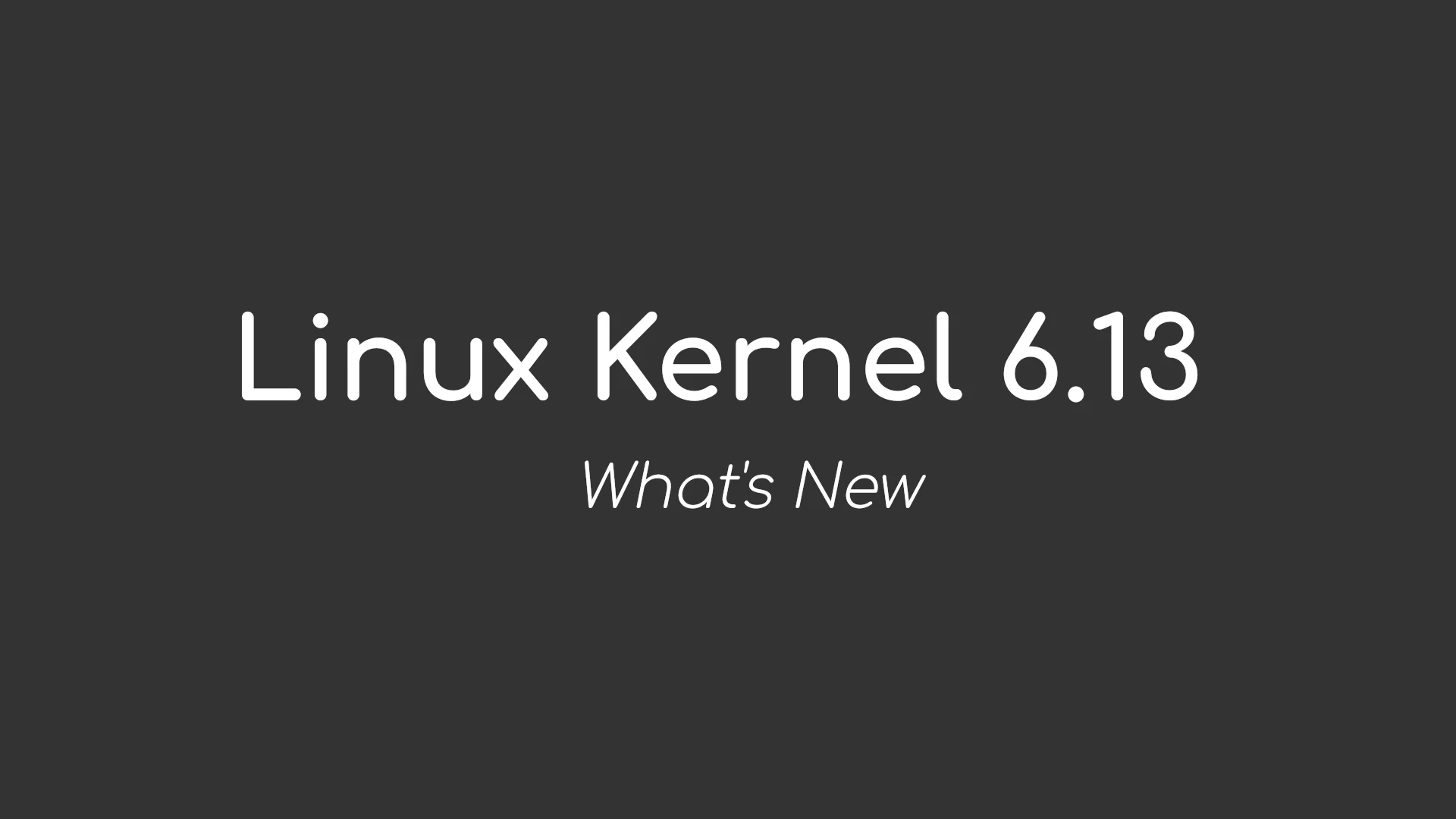If you experience any difficulty in accessing content on our website, please contact us at 1-866-333-8917 or email us at support@chicagovps.net and we will make every effort to assist you.

Today, Linus Torvalds officially announced the launch of Linux Kernel 6.13, the most recent stable version of the Linux kernel that includes numerous new features, enhancements, and improved hardware support.
Key updates in Linux 6.13 comprise support for running Linux in protected virtual machines under Arm’s Confidential Compute Architecture (CCA). The release also introduces lazy preemption, which simplifies the kernel’s preemption logic, and user-space shadow stack support for AArch64 via the Guarded Control Stack (GCS). Additionally, it features support for 6-node sub-NUMA clustering on Intel platforms and split-lock detection for AMD CPUs.
Noteworthy changes further include making the amd-pstate cpufreq driver the default for select newer AMD Epyc processors, enabling user-space modifications for thermal thresholds via netlink, and a new feature in the character device UAPI that notifies user-space about in-kernel triggered changes.
On the hardware front, Linux 6.13 incorporates PMU support for Intel ArrowLake-H and Panther Lake CPUs, as well as new quirks for ACPI backlight for Apple’s MacbookPro11,2 and Air7,2. The SoundWire subsystem now supports the MIPI DisCo 2.0 specification, and there’s a pass-through mode for audio-related accelerators. It also brings the capability for hardware superpages in the V3D driver used for Raspberry Pi computers.
The Linux 6.13 kernel introduces the "Lazy preemption" model for various architectures, which optimizes the fairness of class preemption and adds networking enhancements that lessen contention in namespace-heavy workloads. Changes extend to filesystem features as well, with the F2FS file system introducing device aliasing, XFS obtaining atomic write operation support, and the FUSE filesystem gaining page-to-folio conversions.
In terms of driver support, the kernel adds new and updated drivers for devices such as the Vexia EDU ATLA 10 and Surface Pro 9 5G tablets, Adreno A663 GPUs, and various audio chips from RealTek. It also introduces a virtual-cpufreq driver aimed at enhancing performance in virtual machine workloads.
Linux 6.13 also widens capabilities for the LoongArch architecture, incorporating real-time computing directly, support for pointer masking in userspace, and new tracing event capabilities in Rust.
You can download Linux Kernel 6.13 from Linus Torvalds’ git tree or the official kernel.org website, though it’s advisable to wait for your distribution’s stable repository update.
With 6.13 released, the merge window for the subsequent Linux version, 6.14, has now opened, with an official release expected by the end of March 2025. The first Release Candidate is anticipated to be available for public testing on February 2nd.
ChicagoVPS is your gateway to unparalleled hosting solutions. Our state-of-the-art datacenters and powerful network ensures lightning-fast speeds and uninterrupted connectivity for your websites and applications. Whether you’re a startup looking for scalable resources or an enterprise in need of enterprise-grade hosting, our range of plans and customizable solutions guarantee a perfect fit. Trust in ChicagoVPS to deliver excellence, combining unmatched reliability and top-tier support.
For Inquiries or to receive a personalized quote, please reach out to us through our contact form here or email us at sales@chicagovps.net.
